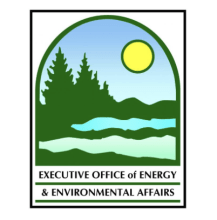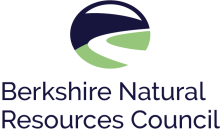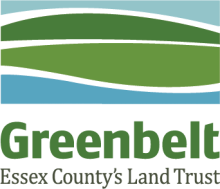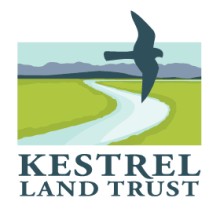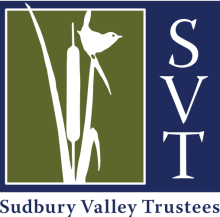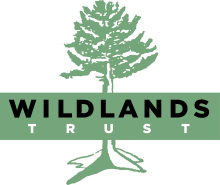The 2026 Massachusetts Land Conservation Conference will be held on Friday, March 13th at UMass Amherst.
Conference schedule (to date) | Workshop descriptions | Presenter bios
Land Conservation Terms & Acronyms (PDF) | Forester CEUs form - March 13 workshops (PDF) | Forester CEUs form - pre-conference talks (PDF)
Become a Sponsor!
View details (PDF)
A variety of sponsorship levels provide visibility for your organization to a live audience of over 550 – plus thousands more who see Conference publicity. Show your organization's commitment to protecting our environment, habitats, and climate, and your support of a great learning opportunity for the conservation community. Contact admin@massland.org with questions.
Keynote Address
We're excited to host Dr. Pooja Sarin Tandon, Health Director for the Trust for Public Land, who will speak on Nature and Health — a Pediatrician's Perspective.
Dr. Tandon is a general pediatrician and health researcher who has dedicated her career to advancing children’s health by promoting healthy behaviors and reducing disparities. In particular, her work has focused on play equity (“play for all children”), and promoting access to physical activity and outdoor recreation. In her new book, Digging into Nature: Outdoor Adventures for Happier and Healthier Kids, she explores how and why children and their families are happier, healthier, and more resilient when spending time outdoors. Dr. Tandon is also (co-)author on several other papers and studies about the relation between the outdoors and healthy children, healthy communities.

A big Thank You to our sponsors!
Supporter
Beals and Thomas, Inc. - BSC Group – Buzzards Bay Coalition – Community Preservation Partners – Davey Resource Group, Inc. – Ecopixel Websites for Conservation – Forest Carbon Works, A Chestnut Carbon Company – Franklin Land Trust – Landscape Land Conservation Software – Land Trust Alliance – LandVest – Little Green Light – Mount Grace Land Conservation Trust, Inc. – Norcross Wildlife Foundation – The Conservation Fund – SWCA Environmental Consultants – Tighe & Bond
Sponsor Talks
These pre-conference talks by top-level conference sponsors provide insights on topics important to these organizations.
These are on Zoom only. You will need to register directly on Zoom to get the access link. To do that, click on the + of the talk you're interested in (below), then see the registration link.
Tuesday, March 3
Noon - 1:00 p.m.
Register here.
EOEEA | Introduction to the New EOEEA/DCS Conservation Restriction Tracking System (CRTS)
Sheri Widdiss, Denise Galvao, Tom McHugh
This workshop will introduce the new Conservation Restriction Tracking System (CRTS), which is a new digital platform designed to streamline and modernize the submission and review process for Conservation Restrictions (CRs) to EEA- Division of Conservation Services (EEA-DCS). Through CRTS, members of the public will be able to submit a CR, monitor its progress, and engage in the review process conducted by EEA-DCS. CRTS will assist EEA-DCS in ensuring that each CR is evaluated efficiently, in a timely manner, and for its public benefit, a core priority of the EEA Secretariat & EEA-DCS. This workshop will provide an overview of CRTS functionality, demonstrate its user interface, and highlight how it supports both EEA -DCS and the broader community in advancing land protection efforts across the Commonwealth.
Sponsored by:
Thursday, March 5
Noon - 1:00 p.m.
Register here
The Nature Conservancy in Massachusetts | Saltmarshes: Protecting and Restoring These Vital Land and Seascapes
Barbara Charry, Marc Carullo, Jessica Dietrich, Charlie Foster, Adrienne Pappal
Saltmarshes are vital habitat for fish and wildlife and for coastal resilience for people and nature. To accelerate work on saltmarsh protection and restoration, the Coastal Working Group of the Resilient Lands Conservation Coalition developed an actionable work plan. The Nature Conservancy, the Massachusetts Office of Coastal Zone Management, and BSC Group, will share the objectives, barriers, needs, and actions identified in the plan as well as a GIS analysis and tool to help identify where there are opportunities to protect and restore saltmarshes and to assist their migration due to increased storm activity and rising sea levels.
Sponsored by:
Conference
Conference schedule (to date) | Workshop descriptions | Speaker bios
Friday, March 13
UMass Amherst Campus Center, Amherst MA (Live, In-person)
Note: General = for all audiences; it does not mean "basic".
9:00 - 10:00 a.m.
Registration, Light Breakfast, Networking, Visit Exhibits, Newcomers' Drop-in
10:00 – 11:15 a.m.
Concurrent Workshops (1 h 15 m)
Are Websites the Next Payphones? Understanding the Changing Role of Websites / Room 804
Patrick Williams, Mitch Sloan
As users increasingly seek immediate answers, time spent browsing is plummeting, and the nature of websites is changing dramatically. With tech companies barreling towards a future none of us want, it begs the question—are websites risk becoming altogether obsolete? In this session we’ll step into the shoes of our users, understand what they want from our websites and how to build around their user experience. We’ll evaluate Search Engine Optimization (SEO) strategies for generative AI summaries and explore easy steps to make your site accessible to broader audiences. This workshop will give you a high-level overview of these challenges, as well as the tools to future-proof your web presence, building a site your users return to regularly
Beyond Plein Air: Connecting Art and Land Conservation / Room 803
Jane Rumrill, Jessica Yurwitz, Jenn Houle
Land trust engagement staff members are always looking for ways to connect with new audiences and bring diverse stakeholders to our cause. Art is a unique and powerful way to engage audiences from every background: urban and rural, young and old, of every gender, political ideology, and identity. Our panelists will discuss how this land trust and local artist partners have joined forces to leverage public interest in art to engage a wide range of audiences on land conservation topics, and how your land trust can do so, as well—even if you think you have no connection with or talent for art yourselves!
Sponsored by:
Team Up with Your Municipality: DCS Open Space & Recreation Grant Programs / Room 168
Melissa Cryan, Vanessa Farny, Colin Novick
The workshop will provide a brief overview of DCS grant programs focused on land protection and/or recreation [Drinking Water Supply Protection, Land and Water Conservation Fund, Parkland Acquisitions and Renovations for Communities, Local Acquisitions for Natural Diversity, Conservation Partnership, Landscape Partnership, Forest Reserves] with an emphasis on examples of how land trusts could partner with municipalities to secure grants for their communities to achieve conservation of priority lands and development of parks. Colin will provide firsthand examples of how the Greater Worcester Land Trust has partnered with municipalities on successful grant applications to many of these grant programs.
Sponsored by:
Beals and Thomas
Community Preservation Partners
Little Green Light
Nipmuc Community Land Project: Carrying Forward Responsibilities to Land and Kinship Beyond Colonial Frameworks / Room 163
Kimberly Toney, Andre Strongbearheart Gaines, Jr., Ite Santana, Keely Curliss
The Nipmuc Community Land Project (NCLP) is a Nipmuc/k-led land trust formed in 2025 to restore and sustain the sacred relationship between the Nipmuc/k people and our ancestral homelands. Grounded in land rescue and care, cultural revitalization, food sovereignty, and environmental justice, this session explores how Indigenous-led NGOs like NCLP enact responsibilities to land and kinship beyond colonial frameworks. Panelists situate NCLP within the broader landscape of Indigenous-led land trusts and reflect on what it means to be a good ally in land return, environmental stewardship, and cultural revitalization. Participants will leave with a clearer understanding of how to engage Indigenous-led NGOs in ways that honor Indigenous self-determination, center Indigenous leadership, and are rooted in respect, reciprocity, and responsibility.
Sponsored by:
Fields Pond Foundation
Mount Grace Land Conservation Trust, Inc.
Interpretive Messaging: Pathways to Make Your Outreach More Effective / Room 165 / Recording
Tom Mullin
Participants will learn the fundamentals of interpretive writing and messaging through publications, waysides and exhibits. There'll be hands-on experience in reviewing the best practices for making the case for their conservation efforts, as well as exploring the possibilities of effective planning and fabrication of outdoor exhibits and waysides. Participants will come away from this workshop with tools for making outdoor exhibits and waysides engaging and effective.
Ecological Stewardship: Now that it's protected, how should it be managed? / Room 174 / Recording
Bill Giezentanner, Pete Westover
We know that the land that we protect needs to be managed. Ecological Stewardship puts the science of ecology in the forefront of such management. Fostering ecological values and balancing them with passive recreational uses, and aesthetic qualities are increasingly challenging in the face of climate change, invasive species, and changes in surrounding land use. Stewardship begins with documentation of a site’s natural assets and the goals and objectives for its management. A Stewardship Plan proceeds to a habitat-by-habitat set of recommendations to assure preservation of the site’s assets and create resiliency.
Sponsored by:
BSC Group
Fields Pond Foundation
SWCA Environmental Consultants
Connecting Land and Water: Regional Collaboration for Conservation and Climate Resilience / Room 162 / Recording
Leah Farr, Erin Rodgers, Marisa Browning, Anna Wilkins
This presentation highlights two regional models advancing landscape-scale conservation in Massachusetts: the Nashua Land and Waters Regional Conservation Partnership (RCP) and the Berkshire Clean, Cold, and Connected (BCCC) Restoration Partnership. Speakers will describe how collaboration, coordinated planning, and a range of funding sources help partners identify priority projects, protect critical lands, and strengthen watershed connectivity. The Nashua Land and Waters partnership will outline how cross-organizational coordination, relationship building, and a shared ArcGIS Online mapping tool support collective conservation decisions. BCCC partners will showcase how nature-based restoration improves aquatic and terrestrial connectivity, reduces flood risks, and supports ecological resilience through strategic river restoration. Presenters will offer practical insights and strategies for practitioners interested in advancing regional collaboration, deepening local partnerships, and supporting long-term conservation goals.
Sponsored by:
Buzzards Bay Coalition
Davey Resource Group, Inc.
Franklin Land Trust
SWCA Environmental Consultants
Tighe & Bond
An Intro to Best Land Trust Practices and Terrafirma Insurance / Room 805
Tom Kester, Mariah Fogg
This workshop offers a clear introduction to the Land Trust Standards and Practices (LTS&P) as a framework of best practices for effective land trust operation, land protection, and stewardship. Participants will learn how LTS&P supports lasting conservation outcomes, and how to use LTS&P as a guiding “north star” to strive toward as their organization grows and evolves. The session will also cover the basics of Terrafirma, the conservation defense insurance program designed for land trusts. Topics include coverage structure, eligibility, ownership, costs, and common exclusions.
Sponsored by:
11:15 – 11:35 a.m.
Break, Visit Exhibitors
11:05 a.m. – 12:20 p.m.
Concurrent Workshops (1 h 15m)
Appreciating Members: Membership Programs for Land Trusts of All Sizes / Room 805
Charlotte Hand Greeson, Rachel Horgan
Join Greenbelt (regional) and Westport (town-based) for an exploration of what “membership” can mean to a conservation organization. We’ll share our approaches to membership, highlighting successes and challenges, and invite participants to share theirs, recognizing that definitions and structures vary. A core focus will be on membership appreciation programs, and how they can deepen engagement, improve donor stewardship, and create unexpected opportunities. Whether your land trust has a long-standing membership program or is considering one, this workshop will offer practical insights and collaborative learning. Understanding how your organization defines ‘membership’ and facilitates a membership program will allow for deeper engagement.
Sponsored by:
Re-examining Your Mission, Vision & Values as the Building Blocks to Strategic Planning / Room 803
Jennifer Plowden, Karen Grey
Strategic plan on the brain? Start here! In this interactive session, participants will explore the critical role that mission, vision, and values play in setting a strong foundation for strategic planning. Through practical frameworks, simple exercises, and guided discussion, attendees will learn how to develop a clear, inspiring vision, articulate a unifying statement of values, and assess and refine their organization's mission. Participants will leave the session equipped with a framework for their planning, as well as the tools and facilitation techniques they’ll need to lead these essential conversations within their own organizations.
Sponsored by:
Troubleshooting Land Conservation Transactions / Room 168
David Santomenna, Jennifer Dubois, Mirando Siemasko
Bring your negotiation challenges for collective troubleshooting. The presenters will provide an overview of negotiation basics, common deal obstacles, and a framework for responding. Most of the session, however, will be time for participants to get input from the presenters and other participants on your difficult negotiations. Distrustful landowner? Dueling appraisals? Feuding family members? We will discuss whatever challenges you are facing. Key lessons: Learn ways to generate creative solutions. Importance of “thinking like a landowner”. Consider colleagues as a resource. Each presenter has extensive experience in land conservation and other real estate transactions.
Sponsored by:
Trails for All Initiative: Expanding Accessibility in Natural Areas / Room 163
Paul Jahnige, Peter Flinker, Amy Sugihara
The Trails for All (TFA) initiative aims to expand accessible trails, through intentional trail planning that removes barriers to access and brings the outdoors to individuals of all abilities via trail improvements such as gentle grades, stable surfaces, and inclusive signage in Massachusetts. Led by a multi-stakeholder task force with leadership by individuals with lived experience with disabilities, the TFA initiative recently released their initial report. Hear about the TFA recommendations and engage in ways that Land Trusts and other conservation organizations can lean into expanding this work.
Sponsored by:
Beals and Thomas
BSC Group
Community Preservation Partners
Fields Pond Foundation
Incorporating a Farm Viability Approach into Farm Conservation / Room 804
Jamie Pottern, Benneth Phelps, Vanessa Johnson-Hall, Kathleen Doherty
Farms are important to our communities. The purpose of an APR, Private APR, or farm-friendly CR is not only to protect the agricultural soils, but also to maintain the active agricultural use of the farm. Farm viability means a farm business can succeed, financially and otherwise. When land trusts conserve land, they may enhance or hinder the viability of a parcel through key decisions about the physical configuration of the restriction as well as the CR/APR language. Because the resource base of the farm is permanently defined through decisions enacted in the conservation process, it is best for decision-makers to account for farm viability at the time of conservation. Join our expert panel for an interactive discussion about how land trusts can support farm viability, and come away with some potential pitfalls and best practices.
Sponsored by:
Community Biodiversity Initiative: Document Species, Protect Land / Room 162 / Recording
David Fryxell, Nellie Wilson
In Massachusetts, conservation organizations have an exceptional opportunity to contribute to land and biodiversity conservation by reporting the presence of state-listed and vernal pool species. However, the degree to which communities have capitalized on these tools varies widely across the state, and over the last two decades, reporting rates have fallen sharply. Here, we will share results from state-wide data analyses aimed at motivating, prioritizing, and guiding species reporting efforts, including practical tips on creating volunteer-led species reporting programs. First, to determine the places in greatest need of reporting, we ranked communities (towns) by how well they have protected habitats through reporting in the past. Second, we conducted analyses to determine the species and habitats most likely to be found, or to reap new regulatory protections by reporting. Third, we will describe the formation and implementation of our own volunteer-led species reporting programs, including how the “Vernal Pool Plunge” has evolved, what’s worked and what hasn’t, and hopes for the future.
Sponsored by:
Exploring Options for Forest Management for Biodiversity and Climate / Room 174 / Recording
Tom Lautzenheiser, Julie RIchburg, Andrew Randazzo
Our forests are changing; what role can land trust lands have in safeguarding conservation values? Through case studies and discussion, we will explore options and considerations for forest management to support biodiversity and climate adaptation and mitigation, from passive to active approaches. Presenters will share their perspectives and thought processes on evaluating the tradeoffs and benefits of various management actions to help others determine what management approaches may be suitable for their lands.
Sponsored by:
Beals and Thomas
Davey Resource Group, Inc.
Mount Grace Land Conservation Trust, Inc.
SWCA Environmental Consultants
Tighe & Bond
Talking Dirty: Contaminated Properties and Land Protection / Room 165 / Recording
David Foss, Joe Spencer, Lorraine Byrne, with Brad Buschur and Vidya Tikku
This workshop will explore the steps land trusts should take when exploring opportunities to acquire contaminated properties to restore biodiversity and expand outdoor recreational opportunities. An expert panel will present the key steps of due diligence, assessment, remediation, and safe reuse. The panel will include a Licensed Site Professionals, representatives from the brownfield team at MADEP and EPA, as well as land trusts with experience working with contaminated property.
Sponsored by:
12:50 – 2:25 p.m.
Lunch / Networking / Exhibits / Keynote / Award Presentation
12:50 – 1:20 p.m.
Visit Exhibitors and Lunch (30 m). Rooms have been reserved for lunchtime networking around the following interests (optional): Development | Small Staffed Land Trusts | Early Conservation Career Network | Land Protection
1:20 - 2:25 p.m. in the Auditorium
MLTC Welcome, Award Presentation and Keynote (1 h 5 m)
Keynote speaker: Pooja Sarin Tandon, MD, MPH, Health Director for The Trust for Public Land (bio)
Talk title: Nature and Health — a Pediatrician's Perspective
2:25 - 2:40 p.m.
Break, visit exhibitors (15 m)
2:40 – 3:40 p.m.
Concurrent Workshops (1 h)
Making Better Trail Maps with the Tools You Have / Room 165 / Recording
Sarah Welch
Trail maps are the first way many members of the public interact with our organizations. But too many trail maps are outdated, inconsistent with organizational style, or lacking critical information trail visitors need – and it can be overwhelming to figure out a fix. Bring your land trust’s trail maps to this interactive session, where you’ll learn best practices for trail map cartography, engage in peer feedback, and receive map style files for your organization to play with. Whether you make your maps in-house or work with a designer, you’ll leave ready to make clear, accessible, and welcoming maps that foster a sense of belonging for all trail users. Some GIS and/or design experience recommended.
Sponsored by:
Nooswetamooonk: Our Duty to Care for the Land Together / Room 163
Pam Ellis, Andre Strongbearheart Gaines, Jr., Jennifer Albertine, Andrew Randazzo, Toni Uliana, Matt DiBona, Mike Mauri, Jose "Ite" Santana. Presented in a talking circle format.
Over the last several years members of the Nipmuc community, foresters, and land conservation organizations have come together to care for the land in partnership. Our work has centered around building relationships and trust to create holistic Forest Stewardship Plans that integrate Indigenous ecological science with western science. This session will speak to our experiences in this important work together. We will introduce the Nipmuc-led Nooswetamooonk Framework. Participants will learn how land stewardship professionals can work respectfully and reciprocally with Indigenous partners to center Indigenous cultural revitalization and knowledge systems as they engage in land stewardship together.
Sponsored by:
Buzzards Bay Coalition
Fields Pond Foundation
Mount Grace Land Conservation Trust, Inc.
Tighe & Bond
Fundraising Made Simple: A Guide for Land Trust Board Members / Room 803
Liz Albert
Protecting land takes resources, and board members can be key to raising the money you need! This session introduces land trust board members to the basics of fundraising for annual support and land campaigns, highlighting the unique ways they can support these efforts -- from effective storytelling to building relationships to championing the work. This training will inspire board members to be strong ambassadors and give them the tools and confidence to help secure the support that makes land protection possible.
Sponsored by:
Getting Your Foot in the Door: Landowner Outreach and Project Generation / Room 162 / Recording
Nick Rossi, Lee Halasz
Having trouble finding new projects or just want to learn more about how to entice the owner of that special property to finally talk to you? This workshop is focused on how to get that conversation started. Time will be spent focusing on different communication mediums and methods, and how to best weave them into an outreach strategy. The presentation will use multiple case studies including small, targeted outreach efforts as well as Kestrel's "Go Big" conservation initiative, which sent letters to hundreds of landowners in Western Massachusetts. The workshop will assume that participants have some basic knowledge of how conservation deals work.
Sponsored by:
Coalition Building: Advancing the Aims of Urban Agriculture / Room 805
Abby Hardy-Moss, Brett Otis, Becca Smalley
The North Shore Farm & Food Coalition (NSFFC) was formed in 2022 to build collaboration among food, farming, educational, and municipal partners, to help identify and develop regional opportunities and actions for expanded food production capacity, increased local food security and reduced carbon emissions in the cities of Beverly, Danvers, Peabody, Lynn, and Salem. In this workshop, we’ll tell the story of how Greenbelt worked with NSFFC to map existing and potential growing spaces and fresh food hubs; how, using this data, we built an interactive dashboard, and how we worked with the Coalition to share the dashboard with on the ground practitioners. We'll describe the broad goals and work of the NSFFC, provide an overview of Greenbelt’s work including: funding, details of the GIS process, resources we tapped to get the project done, a dashboard demo, and what worked (and what didn’t), and we’ll describe the next steps for the project.
Sponsored by:
Conservation Restriction Stewardship Roundtable / Room 168
Sally Naser, Andrew Bentley
Via peer-to-peer, lightly structured discussion, this session will provide opportunities to network with colleagues and talk about pressing and emerging issues for stewardship. Bring questions you need guidance on as well as success stories to share as examples. Themes covered may include CR landowner relations, successor landowner issues, violations across the spectrum, technology, recordkeeping, staffing challenges and more.
Sponsored by:
Davey Resource Group, Inc.
Landscape Land Conservation Software
Land Trust Alliance
Tips for Recruiting and Retaining a Strong Stewardship Volunteer Corps / Room 174 / Recording
Kelly Barber, Owen Grey
Kelly Barber (Barnstable Land Trust) and Owen Grey (Wildlands Trust) will share their mix of experiences that have led to the development of their respective cohesive stewardship volunteer cohorts and stewardship committees. Their presentations will cover successful techniques in recruitment, training, structure, and communications that were essential building blocks for where their corps are at today, as well as lessons learned along the way.
Sponsored by:
Conservation Legal Roundtable / Room 804
Elizabeth Wroblicka, Jennifer Dubois
This session will be an interactive discussion for attorneys and experienced land trust practitioners, facilitated by Elizabeth Wroblicka and Jennifer Dubois. The goal is for everyone to benefit from the knowledge in the room through respectful discussion of topics that apply to advanced conservation and stewardship, with an emphasis on legal issues. Attendees will be asked to submit discussion topics in advance. Examples of topics that may be discussed: Can the holder of a private APR control who resides in a residence on the farm property? Should a CR prohibit all commercial uses? Should you acquire title insurance for the donation of a CR? When a CR property has been subdivided with portions granted to different landowners (because the CR did not prohibit subdivision), what are the enforcement implications?
Sponsored by:


